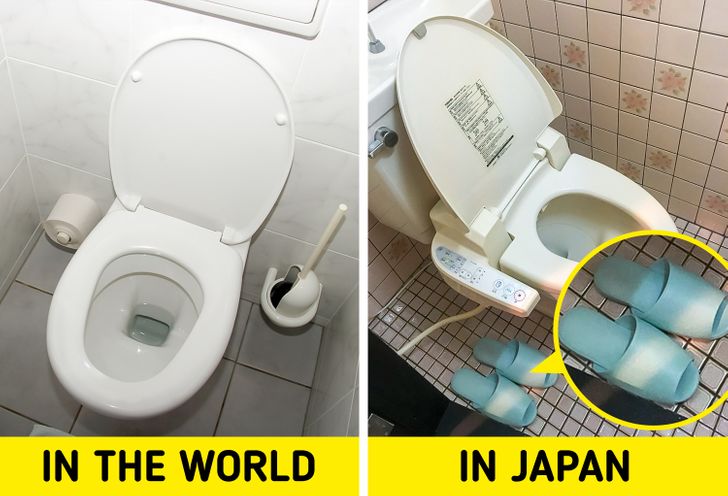Japan is a country deeply rooted in tradition, respect, and etiquette. While many customs may seem familiar to people from other cultures, some everyday habits in other countries might be considered impolite or even unacceptable in Japan. If you are planning to visit or live in Japan, understanding these cultural differences will help you avoid uncomfortable situations.
1. Avoid Picking Up Items Dropped by Someone on the Street

In many cultures, picking up something that someone else has dropped is seen as a kind gesture. However, in Japan, people typically avoid doing this. If a person drops an item, they are expected to retrieve it themselves. This is linked to the concept of personal space and respect, where unnecessary interaction with strangers is minimized.
2. Covering Shoulders Is the Norm

While Western fashion allows for exposed shoulders, especially in hot weather, this is not very common in Japan. Women, in particular, tend to dress conservatively, especially in professional and formal settings. Wearing sleeveless tops or off-the-shoulder outfits might draw unwanted attention.
3. Eating in Silence Is Not Expected

In many countries, eating in silence is considered polite, particularly in formal settings. However, in Japan, making slurping sounds while eating noodles is a sign of enjoyment. It is not considered rude but rather a way to show appreciation for the food.
4. Loud Conversations Are Not Appreciated

While Japan allows for some noise during meals, loud conversations, especially in public places, are frowned upon. Speaking loudly on public transportation, in restaurants, or in shared spaces is considered disruptive and inconsiderate.
5. Posture Is More Important in Japan

In Japan, good posture is a sign of discipline and respect. Slouching, leaning on walls, or sitting in a relaxed manner in public places may be seen as disrespectful. Proper posture is particularly emphasized in formal settings and business environments.
6. Taxi Doors Open Automatically

Unlike in many countries where passengers open and close taxi doors themselves, Japanese taxis are equipped with automatic doors. The driver controls the door, and passengers are expected to wait for it to open and close by itself.
7. Perfume Usage Is Minimal

Wearing strong perfumes or fragrances is uncommon in Japan. Many people are sensitive to scents, and overpowering fragrances can be considered unpleasant. Light and subtle scents, if any, are preferred.
8. Tipping Is Not a Customary Practice

Unlike in Western countries, tipping is not a part of Japanese culture. Offering a tip can even cause confusion or embarrassment for service staff. Exceptional service is expected as a standard, and gratitude is usually expressed verbally rather than monetarily.
9. Eating or Drinking in Public Places Is Discouraged

While street food culture is popular in many countries, in Japan, eating or drinking while walking is generally avoided. Consuming food and drinks in designated areas such as restaurants, cafes, or food stalls is preferred.
10. Tattoos Are Commonly Hidden

Tattoos have historically been associated with the Yakuza (Japanese organized crime groups), and they still carry a stigma in many places. Visitors with tattoos may be asked to cover them, especially when visiting public baths, pools, or traditional hot springs (onsen).
11. Shoes Must Be Removed Even in Some Public Toilets

In Japan, it is customary to remove shoes before entering homes and some establishments. This practice extends to certain public toilets, where special slippers are provided. Wearing outdoor shoes in these areas is considered unhygienic.
12. Extending Your Arm When Meeting People Is Not Common

Unlike in Western cultures where handshakes are common, in Japan, people greet each other with bows. Extending an arm for a handshake might feel unnatural or even intrusive to some Japanese people, especially in formal settings.
13. Honking Is Considered Inappropriate

Car honking is commonly used as a means of communication in many countries. However, in Japan, honking is generally avoided unless absolutely necessary. Excessive honking is seen as aggressive and rude.
14. Open Displays of Affection Toward the Opposite Gender Are Uncommon

Public displays of affection, such as hugging, kissing, or even holding hands, are rare in Japan. While younger generations may be more accepting of these behaviors, traditional values still discourage such expressions in public.
15. Giving Up Seats in Public Transport Is Not a Must

In many countries, giving up a seat to someone elderly or in need is expected. In Japan, however, it is not always necessary. Priority seats are available for those who need them, and many elderly individuals prefer not to be singled out for assistance.
16. Pointing at Objects or People Is Considered Rude

Using a finger to point at something is viewed as impolite and sometimes even aggressive in Japan. Instead, people use an open hand with the palm facing upward to gesture towards objects or directions.
Final Thoughts
Japan’s cultural norms are rooted in respect, discipline, and social harmony. While some customs may seem unusual to visitors, adapting to these practices will enhance your experience in the country. Observing local etiquette shows appreciation for Japanese culture and helps build positive interactions with locals. Being mindful of these differences will ensure a smoother and more enjoyable stay in Japan.


